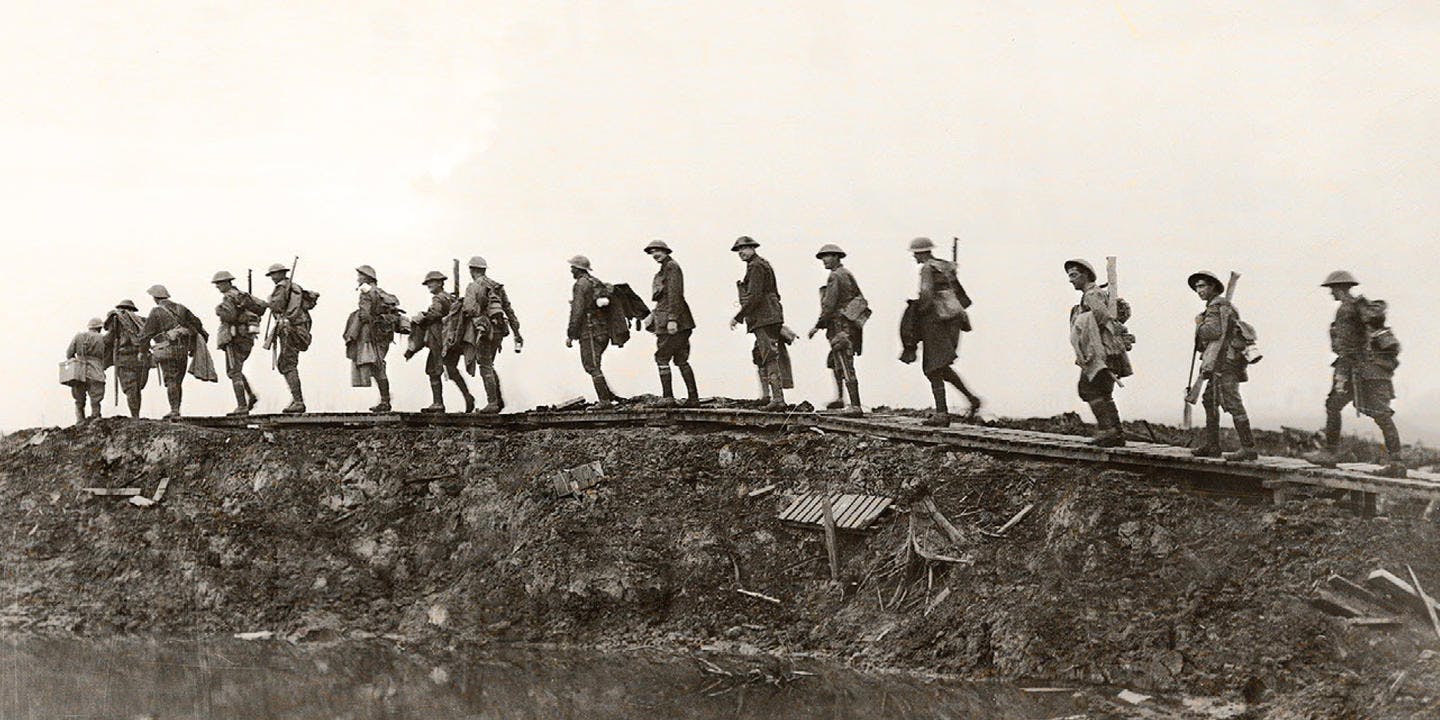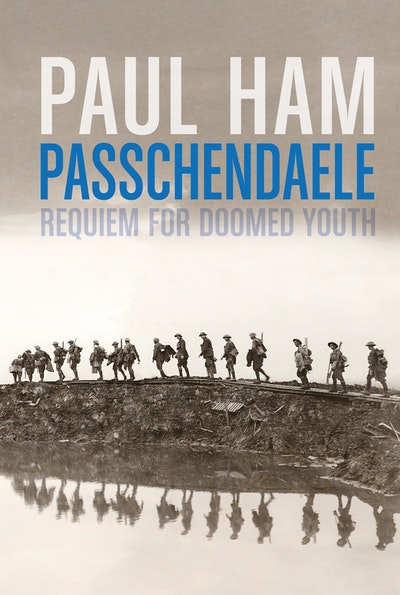The Battle of Langemarck: an Irish tragedy.
On 16th August 1917, Field Marshal Sir Douglas Haig ordered a fresh attack – in what would be called the Battle of Langemarck – across the waterlogged fields of Flanders. His goals were narrowing: the prospect of capturing the German submarine bases on the Belgian coast looked highly unlikely. For now, he focused his strength on the Ypres Salient, and the village of Passchendaele, some 5 km ahead.
In the ensuing struggle a tragedy befell the two Irish divisions – the 36th (Ulster), formerly the Ulster Volunteer Force, and the 16th (Irish), formerly John Redmond’s ‘Irish Brigade’ – during their attack on Zonnebeke Ridge.
This was the second time during the Flanders offensive that the ‘Protestant’ and ‘Catholic’ divisions had been sent into battle side by side. Within a few hours both were mown down by German artillery and machine gunners. They virtually ‘ceased to exist as fighting formations’, observed one witness.
A chaplain, the Jesuit Father William Doyle, spent all day in no-man’s-land administering last rites to soldiers of both faiths. He found one young man ‘lying on his back, his hands and face a mass of blue phosphorus flame smoking horribly in the darkness’. Doyle had earned the Military Cross at the Somme, and ‘many of the men believed him to be immortal’. He died a few days later, struck by a shell while comforting the wounded. Three officers recommended him for a Victoria Cross but he received nothing: ‘the disqualification of being an Irishman, a Catholic and a Jesuit, proved insuperable,’ according to one witness.
The heavy Irish losses marked a cruel end to one of the bravest commitments on the Western Front. Since entering the line, the Irish divisions had each lost about 8000 men, almost half their strength. Both had suffered terribly on the Somme.
Yet the Irish sacrifice at Langemarck earned them little more than their commander General Hubert Gough’s scorn and an entry in Haig’s diary: ‘Gough was not pleased with the action of the Irish divisions,’ Haig wrote. ‘They seem to have gone forward but failed to keep what they had won… the men are Irish and apparently did not like the enemy’s shelling, so Gough said.’
This squalid sentiment by an avowed loyalist bore no relation to the truth. Both Catholic and Protestant Irishmen were physically exhausted, their ranks already heavily depleted. Yet they hurled themselves into battle that day without question or complaint: 200 Ulstermen fell dead or wounded in the first half-minute of the Battle of Langemarck.
Keep your eyes out for the next in this series of posts by Paul Ham, tracking the key moments and turning points in the Battle of Passchendaele.













